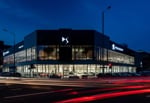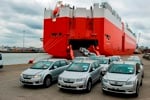Accident Exchange, which puts drivers back on the road in comparable quality cars after a no-fault prang, has seen its own share price crash after a profit warning.
The dependency on road accidents rather than consumer buying power was thought to insulate the rental company against the worst of the recession.
But a share price that stood at 106p a year ago was 14p just before Christmas, valuing the business at £14m – less than last year’s pretax profit.
There are four companies in the sector, of which Accident Exchange is the only one listed on the main stock-market. It has grown strongly and has revenue up 11% on last year at £86m in the half year to October 31.
The change in the business that unexpectedly caused the pain was recession-based. There were fewer cars on British roads at the end of the period, which therefore led to fewer accidents.
This meant bodyshops had spare capacity so could get jobs completed straight away.
The consequence was that insurance companies paid out on a fewer number of days of car hire to keep customers on the road.
But the big whammy was obvious enough. The cars which were instantly available for rental in an emergency, plummeted in value.
When Accident Exchange had to generate cash, the only option was to sell its luxury and sports cars into the fast-falling market.
The fleet value of £80m had to be written down to £19.6m, which caused a loss before tax of £15.4m compared with last year’s profit of £6.5m. Given that the financial period under review began in April 2008, there are trading results to come that will be much worse.
Accident Exchange chairman David Galloway said that one measure that he will be focusing on was revenue collection. Insurance companies have been holding off making payments for more than 200 days and Accident Exchange is determined to reduce this wait.
The company now has a panel of 18 firms of solicitors working for them who drove litigation up to 24,000 cases, of which half were settled.
Of those, 70% were settled without a court hearing. The target is to get all insurers to pay within the 90 days allowed by the Association of British Insurers.
The cash to be spent on new cars is to halve from the £100m of last year.













Login to comment
Comments
No comments have been made yet.